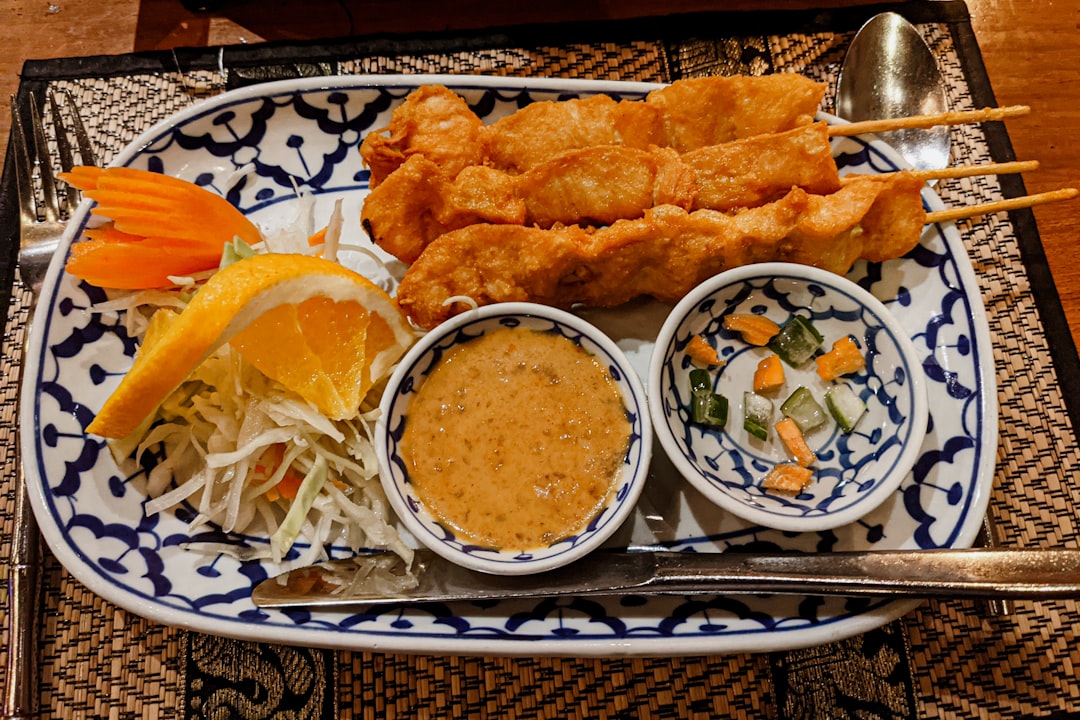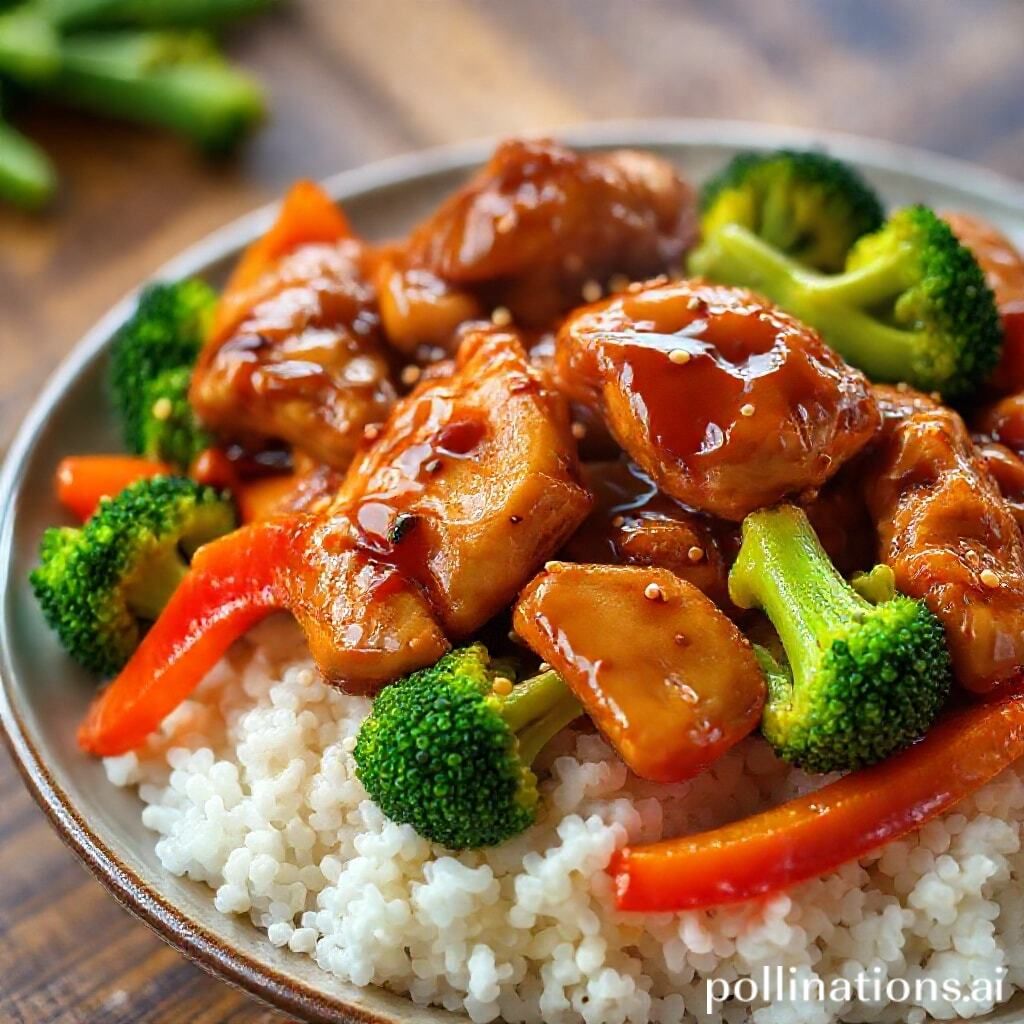Table of Contents
- Introduction
- Understanding Teriyaki Chicken Stir-Fry Ingredients
- Choosing the Right Chicken and Vegetables
- Preparing a Flavorful Teriyaki Sauce
- Cooking Techniques for Perfect Stir-Fry
- Pairing and Serving Suggestions
- Conclusion
- Frequently Asked Questions
Introduction
Embark on a culinary exploration of Asian flavors, where the vibrant world of teriyaki chicken stir-fry awaits. This enticing dish is a true celebration of taste, color, and texture, capturing the essence of Asian cuisine in every bite. Whether you’re a seasoned cook or a kitchen novice, mastering this recipe will elevate your cooking repertoire and impress your taste buds.
Get ready to blend succulent pieces of chicken with a medley of fresh vegetables, all enveloped in a glossy, aromatic teriyaki sauce. With a harmony of sweet, savory, and umami notes, this dish presents an irresistible allure, perfect for a weeknight meal or a special occasion dinner.
Understanding Teriyaki Chicken Stir-Fry Ingredients
Understanding the ingredients for Teriyaki Chicken Stir-Fry is essential for creating a delicious and balanced dish. The key ingredient is, of course, chicken. Opt for boneless, skinless chicken breasts or thighs for a lean protein that cooks quickly. These cuts absorb flavors well and are ideal for stir-frying.
Another vital component is the vegetables. Common choices include bell peppers, broccoli, and snap peas, offering a mix of colors and textures. These vegetables not only enhance flavor but also provide nutritional benefits, such as fiber and vitamins.
The star of the dish, teriyaki sauce, is a harmonious blend of soy sauce, mirin, and sugar. This combination creates a sweet and savory glaze that coats the ingredients beautifully. You can customize the sauce by adjusting the sugar level or adding ginger and garlic for an extra layer of flavor.
To bring the dish together, use a neutral oil like canola or vegetable oil for stir-frying. These oils have a high smoke point, making them perfect for high-heat cooking. Completing the dish with a sprinkle of sesame seeds or green onions not only adds visual appeal but also an additional burst of flavor.
Choosing the Right Chicken and Vegetables
Choosing the right chicken and vegetables is crucial for crafting a delicious Teriyaki Chicken Stir-Fry. Opt for boneless, skinless chicken breast or thighs as they cook quickly and evenly, ensuring a tender result. Thighs offer a richer taste due to their higher fat content, while breasts provide a leaner option.
When it comes to vegetables, variety and freshness are key. Common choices include bell peppers, broccoli, carrots, and snap peas. These vegetables not only add vibrant colors to the dish but also contribute to the overall nutritional value. Bell peppers provide a sweet crunch, while broccoli and snap peas add texture and nutrients.
Consider slicing your vegetables uniformly to ensure even cooking, and aim for a mix of colors to enhance the visual appeal of the stir-fry. Fresh vegetables are preferred over frozen, as they retain their crispness better during stir-frying. However, if time is constrained, opt for high-quality frozen vegetables to save on preparation time.
In conclusion, selecting the right chicken and vegetables involves balancing flavor, texture, and nutritional content to create a harmonious and satisfying Teriyaki Chicken Stir-Fry.
Preparing a Flavorful Teriyaki Sauce
Creating a tantalizing teriyaki sauce at home is easier than you may think, and it can elevate your chicken stir-fry to a new flavor dimension. The key ingredients are typically soy sauce, mirin, a type of sweet rice wine, and sugar. These components create the perfect blend of umami, sweetness, and a touch of tanginess. You might also want to include freshly grated ginger and minced garlic for added depth and an aromatic boost.
To prepare the sauce, start by whisking together half a cup of soy sauce, a quarter cup of mirin, and two tablespoons of sugar in a small bowl until the sugar dissolves completely. For those who prefer a sweeter sauce, you can adjust the sugar to taste. Incorporating a tablespoon each of grated ginger and minced garlic will further enhance the sauce’s complexity.
Once mixed, set the sauce aside while you prepare the chicken and vegetables for the stir-fry. This allows the flavors to meld together, creating a richer, more cohesive taste. When you’re ready to use it, this versatile sauce can be poured over your stir-fry or used as a marinade to infuse the chicken with its irresistible flavors.
Cooking Techniques for Perfect Stir-Fry
Cooking a perfect teriyaki chicken stir-fry involves mastering a few essential techniques to ensure that your dish is both flavorful and visually appealing. Start by preparing all your ingredients ahead of time. This includes slicing chicken, vegetables, and preparing your sauce. Having everything ready makes the stir-fry process quick and efficient.
Using a wok or a large skillet works best for stir-frying. Ensure it’s heated to a high temperature before adding your ingredients, which helps in achieving that perfect sear and locking in flavors. Add oil with a high smoke point, like vegetable or peanut oil, for a better cooking experience.
Begin cooking by adding the chicken first, allowing it to cook until it’s golden brown. Remove it from the pan before adding vegetables like bell peppers, broccoli, or snap peas. Stir constantly to prevent burning and to ensure even cooking.
For the teriyaki sauce, either make it from scratch or use a high-quality store-bought version. Add it towards the end, allowing everything to coat evenly and those delicious flavors to meld well.
This method ensures that the vegetables remain crisp, the chicken juicy, and every bite bursting with flavor.
Pairing and Serving Suggestions
Teriyaki chicken stir-fry is a versatile dish that pairs wonderfully with a variety of sides and accompaniments. A classic choice is steamed white or brown rice. The subtle flavors of the rice allow the savory and sweet notes of the teriyaki sauce to shine. If you’re looking for a healthier alternative, try serving it with quinoa or cauliflower rice.
For a refreshing contrast, consider a simple cucumber salad or a serving of pickled vegetables. These elements add a crisp texture and tangy flavor that complements the rich teriyaki glaze. To enhance the umami taste further, sprinkle the dish with toasted sesame seeds or thinly sliced green onions just before serving.
If you’re planning a more elaborate meal, pair your teriyaki chicken stir-fry with miso soup or a bowl of warm edamame beans. These traditional Japanese sides will elevate your dining experience, providing a taste of authentic Asian cuisine. Don’t forget to serve a pot of hot green tea, which not only aids digestion but also balances the flavors on your plate beautifully. Whether it’s a casual weeknight dinner or a special occasion, these pairing suggestions will ensure a satisfying and delicious meal.
Conclusion
In mastering the art of Teriyaki Chicken Stir-Fry, you’ve embarked on a journey to capture the essence of Asian cuisine, blending vibrant flavors and textures into a harmonious dish. By understanding how to choose the right cuts of chicken and the freshest vegetables, crafting a rich and tantalizing teriyaki sauce, and applying the right cooking techniques, you can create a stir-fry that’s both delicious and true to its roots. This culinary exploration invites creativity, allowing you to tailor ingredients to your taste and indulge in the delightful dance of sweet and savory flavors. Serve it alongside classic sides like steamed rice or explore bold pairings such as quinoa and pickled vegetables for a refreshing contrast. Whether you’re preparing a quick weeknight meal or aiming to impress with a flavorful feast, this versatile dish offers endless possibilities. To further elevate your cooking prowess, why not expand your chicken recipe repertoire? Discover “The Chicken Bible: Say Goodbye to Boring Chicken with 500 Recipes for Easy Dinners, Braises, Wings, Stir-Fries, and So Much More.” This comprehensive guide, available here, is your ticket to transforming ordinary meals into extraordinary culinary experiences. Happy cooking!

